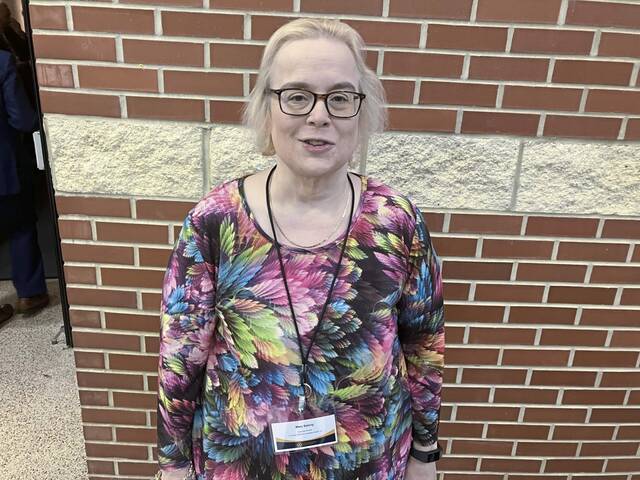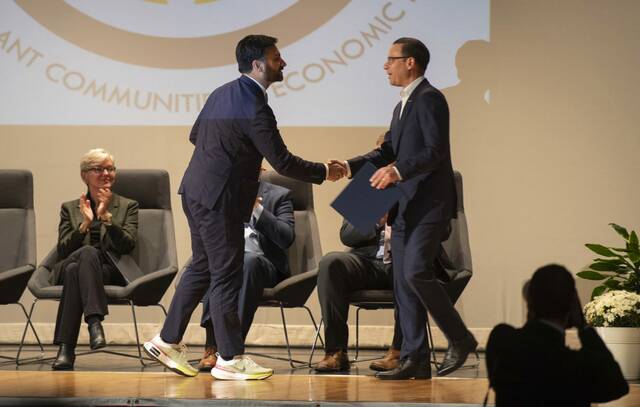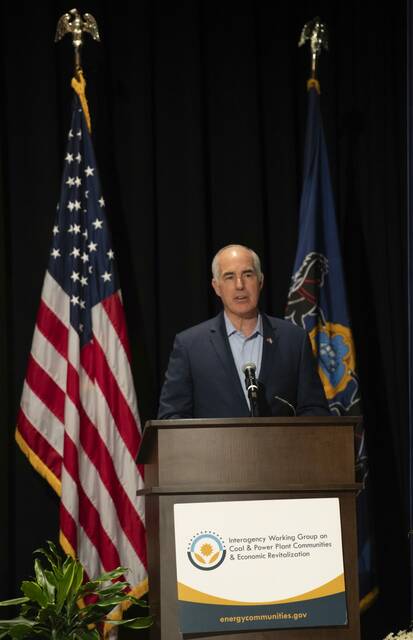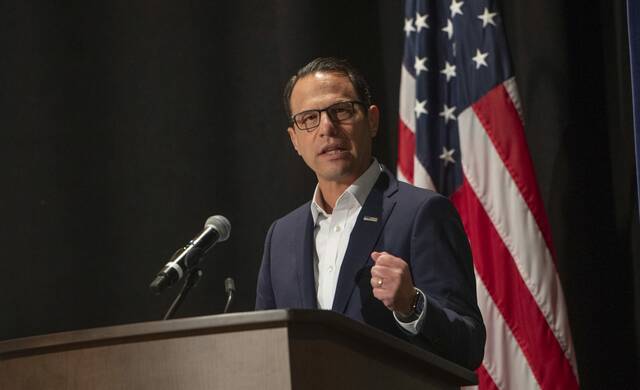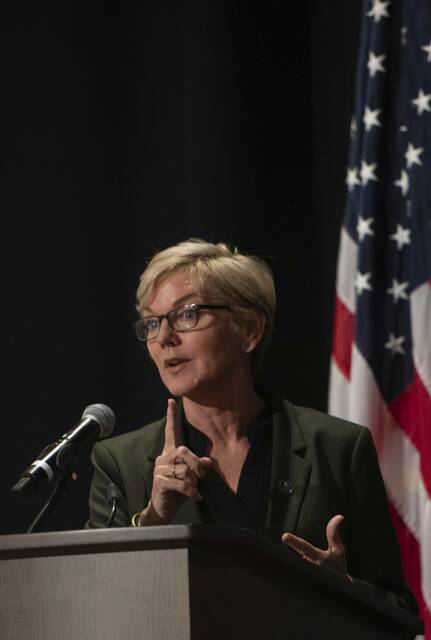If the region can boast there are workers here who are trained in the semi-conductor industry, it could be a boon for economic development.
That’s the thinking of Mary Salony, the executive director of the Tri-County Workforce Investment Board.
And the group is set to receive $1.4 million in federal cash for such training.
The Tri-County Workforce Investment Board will receive the money from the federal Appalachian Regional Commission to train 500 workers at the Steamfitters Local 449 Training Center near Harmony, Salony said.
It should help draw new businesses to the area, she said Friday at a conference at the Westmoreland County Community College near Youngwood.
The event attracted more than 200 state, federal and local leaders from several Southwestern Pennsylvania counties to announce the state’s role in developing industries and businesses that run on “clean energy.”
The money is just a small piece of very large pot of millions in federal money that is being directed to Pennsylvania, said Sen. Robert Casey, D-Scranton.
Western Pennsylvania is one of the 25 regions in the United States that have been prioritized for a focused federal investment, according to the Interagency Working Group. That’s a coalition of federal energy-related agencies, including the National Energy Technology Laboratory in Bruceton.
Gov. Josh Shapiro pointed out that Pennsylvania will benefit from two regional “clean energy” hydrogen hubs, one in this state and the other close by in West Virginia.
“The clean energy hub has enormous potential for the future. It will help us build an entire energy ecosystem,” Shapiro said, adding that the “future of Pennsylvania’s energy economy is bright.”
For example, a hydrogen hub plant will produce hydrogen for a Uniontown-area plant that will produce low-carbon fuel for trucks and jets, said U.S. Energy Secretary Jennifer Granholm.
In addition, Eos Energy Enterprises Inc. is expanding its plant in Turtle Creek, the site of the former Westinghouse Electric plant, to build more zinc-based sustainable energy storage systems — specialized industrial batteries, Granholm said.
With more money being allocated to the clean energy sector, it’s important “to make sure that manufacturers in the region can take part in the new technology,” said Petra Mitchell, executive director of Catalyst Connection, a Pittsburgh-based nonprofit that provides consulting services and training to small manufacturers.
“We want to make sure that small- and mid-sized manufacturers are part of that system — leaner, cleaner and greener,” Mitchell said.



